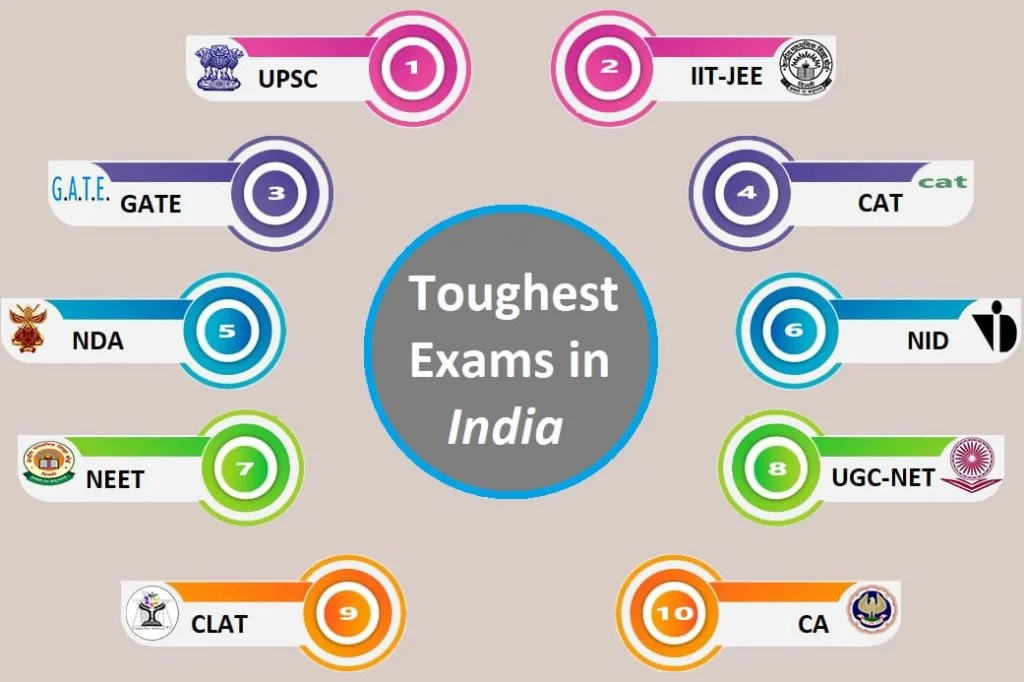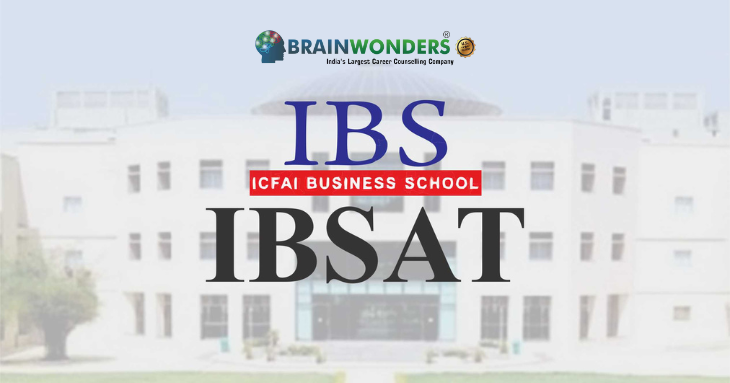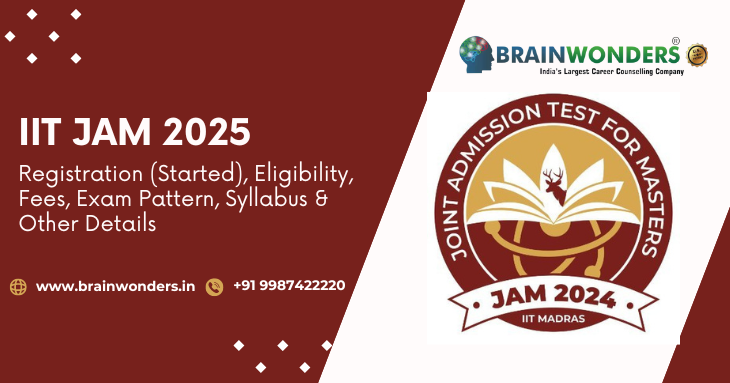

Your Brainwonders result to will help you identify the right exams you need to be ready for!
Bank on your strengths and learning style to ace the exams on your path to your dream career
Blog
19 April,2024 | By Brainwonders

The toughest exams in India are known for their rigorous syllabi, high competition, and low success rates. These exams are considered the gateway to prestigious careers and institutions in the country. This article will discuss the top 20 toughest exams in India, their full forms, conducting authorities, exam dates, frequencies, modes, mediums, exam durations, types of questions, and official websites.
The UPSC CSE is considered the toughest exam in India, with a success rate of less than 1%. It is conducted in three stages - Prelims, Mains, and Interview - and tests candidates on various subjects, including history, geography, economics, and current affairs. The preliminary exam consists of two objective-type papers, while the mains exam consists of nine descriptive-type papers. The final stage is a personal interview, which tests the candidate's personality, communication skills, and leadership qualities.
The IIT-JEE is the entrance exam for admission to the prestigious Indian Institutes of Technology (IITs) and other top engineering institutions in India. It is divided into two stages - JEE Main and JEE Advanced—and tests candidates on their knowledge of physics, chemistry, and mathematics. The JEE Main exam consists of two objective-type papers, while the JEE Advanced exam consists of two objective-type papers and one subjective-type paper.
The AIIMS MBBS Entrance Exam is conducted for admission to the undergraduate medical courses offered by the All India Institute of Medical Sciences (AIIMS) and other top medical institutions in India. It tests candidates on their knowledge of physics, chemistry, biology, and general knowledge. The exam consists of one objective-type paper, and the questions are based on the 11th and 12th standard syllabus.
The NDA & NA Exam is conducted for admission to the National Defence Academy (NDA) and the Indian Naval Academy (INA). It is divided into two parts—the Mathematics and General Ability Test—and tests candidates on their knowledge of mathematics, English, and general knowledge. The exam consists of two objective-type papers, and the questions are based on the 10th and 12th standard syllabus.
The GATE is an entrance exam for admission to engineering, technology, architecture, and science postgraduate programs. It is conducted by the Indian Institute of Technology (IITs) and the Indian Institute of Science (IISc) and tests candidates on their mathematics, physics, chemistry, and engineering knowledge. The exam consists of one objective-type paper, and the questions are based on the undergraduate syllabus.
The CAT is an entrance exam for admission to postgraduate management programs offered by the Indian Institutes of Management (IIMs) and other top business schools in India. It tests candidates on their knowledge of quantitative aptitude, verbal ability, data interpretation, and logical reasoning. The exam consists of one objective-type paper, and the questions are based on the undergraduate syllabus.
The JEE (B.Arch) is an entrance exam for admission to undergraduate architecture courses offered by the National Institutes of Technology (NITs) and other top architecture institutions in India. It tests candidates on their knowledge of mathematics, aptitude, and drawing. The exam consists of one objective-type paper, and the questions are based on the 11th and 12th standard syllabus.
The UGC-NET is an entrance exam for eligibility for the assistant professor and junior research fellowship (JRF) posts in universities and colleges across India. It tests candidates on their teaching and research aptitude, general awareness, reasoning ability, and reading comprehension. The exam consists of two objective-type papers, and the questions are based on the undergraduate and postgraduate syllabus.
The ISI Entrance Exam is conducted for admission to undergraduate and postgraduate statistics, mathematics, and computer science programs offered by the Indian Statistical Institute (ISI). It tests candidates on their mathematics, statistics, and computer science knowledge. The exam consists of two objective-type papers and one descriptive-type paper, and the questions are based on the undergraduate syllabus.
The NID DAT is an entrance exam for admission to undergraduate and postgraduate design programs offered by the National Institute of Design (NID). It tests candidates on their design aptitude, creativity, and problem-solving skills. The exam consists of two objective-type papers and one descriptive-type paper, and the questions are based on the undergraduate syllabus.
The IIFT Entrance Exam is conducted for admission to the Master of Business Administration (MBA) program in International Business offered by the Indian Institute of Foreign Trade (IIFT). It tests candidates on their knowledge of English, general awareness, logical reasoning, and data interpretation. The exam consists of one objective-type paper, and the questions are based on the undergraduate syllabus.
The JNUEE is an entrance exam for admission to undergraduate, postgraduate, and research programs offered by Jawaharlal Nehru University (JNU). It tests candidates on their knowledge of their respective subjects and general awareness. The exam consists of one objective-type paper, and the questions are based on the undergraduate and postgraduate syllabus.
The BITSAT is an entrance exam for admission to undergraduate programs offered by the Birla Institute of Technology and Science (BITS) Pilani, Goa, and Hyderabad campuses. It tests candidates on their physics, chemistry, mathematics, and English knowledge. The exam consists of four objective-type papers, and the questions are based on the 11th and 12th standard syllabus.
The SET is an entrance exam for admission to undergraduate programs offered by Symbiosis International (Deemed University) and its affiliated colleges. It tests candidates on their knowledge of general English, quantitative aptitude, analytical reasoning, and current affairs. The exam consists of one objective-type paper, and the questions are based on the 11th and 12th standard syllabus.
The MAHE OET is an entrance exam for admission to undergraduate and postgraduate programs offered by the Manipal Academy of Higher Education (MAHE) and its affiliated colleges. It tests candidates on their physics, chemistry, biology, and mathematics knowledge. The exam consists of one objective-type paper, and the questions are based on the undergraduate and postgraduate syllabus.
The VITEEE is an entrance exam for admission to undergraduate engineering programs offered by the Vellore Institute of Technology (VIT) and its affiliated campuses. It tests candidates on their physics, chemistry, mathematics, and English knowledge. The exam consists of one objective-type paper, and the questions are based on the 11th and 12th standard syllabus.
The AMUEE is an entrance exam for admission to undergraduate, postgraduate, and research programs offered by the Aligarh Muslim University (AMU) and its affiliated colleges. It tests candidates on their knowledge of their respective subjects and general awareness. The exam consists of one objective-type paper, and the questions are based on the undergraduate and postgraduate syllabus.
The BHU UET is an entrance exam for admission to undergraduate programs offered by the Banaras Hindu University (BHU) and its affiliated colleges. It tests candidates on their knowledge of their respective subjects and general awareness. The exam consists of one objective-type paper, and the questions are based on the 11th and 12th standard syllabus.
The JMIEE is an entrance exam for admission to undergraduate, postgraduate, and research programs offered by the Jamia Millia Islamia (JMI) and its affiliated colleges. It tests candidates on their knowledge of their respective subjects and general awareness. The exam consists of one objective-type paper, and the questions are based on the undergraduate and postgraduate syllabus.
The IAT is an entrance exam for admission to integrated BS-MS programs offered by the Indian Institutes of Science Education and Research (IISERs) and its affiliated campuses. It tests candidates on their physics, chemistry, mathematics, and biology knowledge. The exam consists of one objective-type paper, and the questions are based on the 11th and 12th standard syllabus.
In conclusion, these are the top 20 toughest exams in India, and they require a lot of hard work, dedication, and perseverance to crack. Candidates must clearly understand the exam pattern, syllabus, and marking scheme to prepare effectively. Regular practice, time management, and stress management are also crucial for success in these exams. Aspirants should also focus on building their conceptual clarity, problem-solving skills, and analytical abilities to score high in these exams. With the right approach, dedication, and hard work, candidates can achieve their dream of cracking these tough exams and securing admission to their preferred courses and institutions.
FAQs
Q1. Which is the toughest exam in India?
Answer: The Union Public Service Commission (UPSC) Civil Services Main Examination is considered the toughest exam in India due to its comprehensive nature and low success rate.
Q2. How can I prepare for these tough exams in India?
Answer: To prepare for these exams, you need to create a study plan, gather study materials, and practice regularly. You can also join coaching classes, participate in mock tests, and revise regularly.
Q3. What is the success rate of these tough exams in India?
Answer: The success rate of these exams varies but is generally low, with only a small percentage of candidates making it to the final list.
Q4. What are the benefits of clearing these tough exams in India?
Answer: Clearing these exams can lead to admission to prestigious institutions, government jobs, and other opportunities that offer high salaries, job security, and social prestige.
Q5. How long does it take to prepare for these tough exams in India?
Answer: The preparation time for these exams varies depending on the exam and the candidate's level of knowledge and skills. However, most candidates spend at least a year or two preparing for these exams.
Your Brainwonders result to will help you identify the right exams you need to be ready for!
,_Syllabus,_Pattern,_Old_Question_Papers.png)

